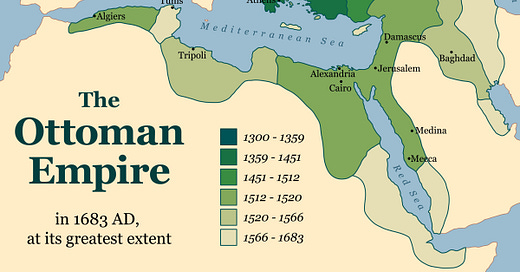Monday Mutterings: Oct 26/20
I pontificate on the escalating cold war between Turkey (and Qatar) and the UAE/Saudi Arabia axis in the Middle East.
Welcome to the second edition of the weekly Monday Mutterings newsletter, where I rant and rave about the latest in world news. This will be in addition to essays that focus on more specific topics that are released as written. If you enjoy my writing, please don’t hesitate to subscribe below and share with friends and enemies alike.
If you’ve brought out the champagne to celebrate yet another Azerbaijan/Armenia ceasefire, keep that cork firmly in the bottle. Hours after US Secretary of State Mike Pompeo announced a new ceasefire on Friday the 23rd of October, both sides resumed accusing the other of shelling military and civilian targets. Backed by Turkish air support, the Azerbaijani army seems to have made significant gains on the southern front of the conflict. Their reticence to follow through on ceasefires thus makes sense in the context of the momentum.
Turkey’s involvement in the latest round of the Nagorno-Karabakh war is itself an interesting signs of things to come in the Middle East. Under President Recep Teyyip Erdogan, Turkey has sought to assert itself as a regional power. In this, Erdogan is contending with both Iran as well as the Saudi-UAE Gulf axis, each with their own - and sometimes concurrent and sometimes mutually exclusive - interests.

It wouldn’t be a surprise if Erdogan has this map hanging above his bed so he can look at it before bedtime every night. (Source)
This triple threat cold war and love triangle has played out on several fronts. In Libya, Turkey currently supports the UN recognized government in Tripoli against the UAE’s client, the renegade general Khalifa Haftar and his Tobruk based army. And when the UAE and Saudi Arabia led a regional boycott of Qatar in 2017, Turkey accelerated its deployment of troops to its bases in Doha as per a defence treaty signed by the two nations. Turkey also sent its tentative ally supplies by air, flouting the Saudi-UAE attempts to isolate Qatar by air, sea, and land.
Perhaps nothing can elucidate the rivalry between Turkey and the Saudi-UAE axis than Egypt. During the Arab Spring uprisings in 2011, Egyptians toppled longtime dictator Hosni Mubarak. In the following elections, the Muslim Brotherhood achieved a sweeping victory, with Mohamed Morsi emerging as the democratically elected new president of Egypt. Turkey saw this as an opportunity, enthusiastically backing Morsi with both political rhetoric and material support.
Meanwhile, the Saudis and Emiratis were watching all of this unfold with chagrin. They have long viewed political Islamism of the kind espoused by the Muslim Brotherhood as a threat to their monopoly on power. In the Saudis’ case, the Brotherhood acted as an opposing pole to its own version of Islam, Wahhabism, that it seeks to export globally. Therefore, the rise of Morsi in Egypt would have challenged Saudi Arabia’s perceived role as the global exclusive patron of political Islam. On the other hand, the UAE encourages a strongly apolitical Islam, and sees the Brotherhood as a vehicle for dissent to its autocratic rule.
Fast forward to 2013, and General Abdelfatah Al-Sisi launches a coup overthrowing President Morsi and seizing power. Al-Sisi was swiftly recognized by the UAE and Saudi Arabia, and began cracking down hard on the Muslim Brotherhood. This purge culminated in the brutal Raba’a Massacre of Morsi supporters on August 13-14, 2013. And while Al-Sisi got to work crushing the Brotherhood, billions of dollars of capital flooded into Egypt from Saudi Arabia and the UAE. On the other hand, Qatar and Turkey released public expressions of disapproval and anger at the coup. Today, Al-Sisi’s Egypt sits firmly under the UAE-Saudi Arabia umbrella, and in fact participated in the regional embargo of Qatar in 2017.

Egyptian President Abdelfatah El-Sisi was invited by King Salman of Saudi Arabia in 2017 to touch the Orb. Warning: They are not all accounted for, the lost Seeing Stones. We do not know who else may be watching. (Source)
All of this is to say that Erdogan will most likely escalate Turkey’s involvement in the Middle East even more as opportunities present themselves. Erdogan sees Turkey as the successor to the Ottoman Empire, and will act accordingly. Conversely, the UAE and Saudi Arabia have billions of dollars of oil money to spend against Turkey. Moreover, both royal families have spent large amounts of money lobbying various Western powers and pulling them away from the Turkish sphere. Time will tell how this plays out, but it is clear that in a conflict between an Islamist Turkey and the brutal regimes of Saudi Arabia and the UAE, there are no winners among the people in the region.


